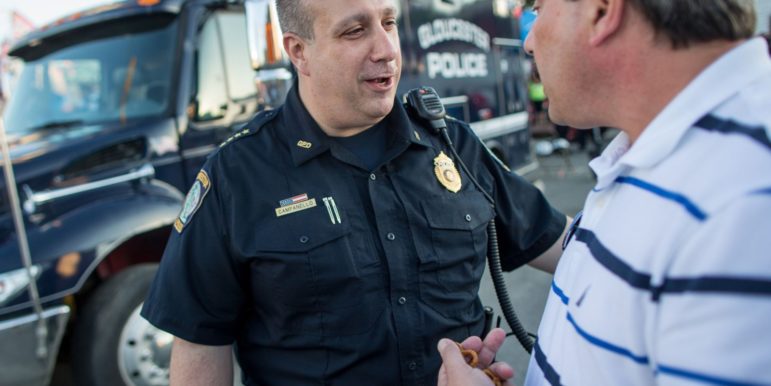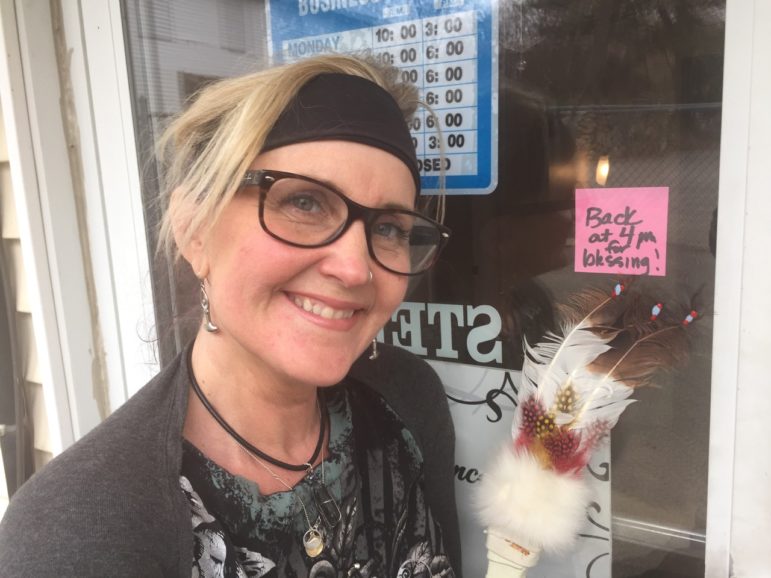
MANCHESTER, NH – As Gloucester, Mass., Police Chief Leonard Campanello continues to work at changing the conversation in his community about addiction and the role of local police, law enforcement officials around the country are taking note and following Campanello’s lead.
Unfortunately, recovery is not a one-size-fits-all solution.
Campanello, along with co-founder John Rosenthal, have established The Police Assisted Addiction and Recovery Initiative (PAARI), and on Nov. 23, they announced a new partnership with a California-based recovery center, Anaheim Lighthouse Treatment Center.
“Anaheim Lighthouse will be able to provide valuable treatment resources on the West Coast, where we have been actively building our network of treatment centers and law enforcement agencies,” Chief Campanello said. “This epidemic is a national issue, and every partner we add to our network ensures that we can continue to help even more participants who struggle with addiction and ensure that no one is turned away.”
 Campanello and Rosenthal launched PAARI – a nonprofit organization created in response to Gloucester Police Department’s ANGEL Initiative. Rather than “arrest their way out of the problem” of drug addiction, partnering police departments place those who come to them for help into treatment programs. As partnerships with treatment centers continue to grow, so does PARRI’s ability to support police departments who want to assist their communities in saving lives, says PAARI spokesman John Guilfoil.
Campanello and Rosenthal launched PAARI – a nonprofit organization created in response to Gloucester Police Department’s ANGEL Initiative. Rather than “arrest their way out of the problem” of drug addiction, partnering police departments place those who come to them for help into treatment programs. As partnerships with treatment centers continue to grow, so does PARRI’s ability to support police departments who want to assist their communities in saving lives, says PAARI spokesman John Guilfoil.
“Police Departments in New Hampshire are beginning to partner with PAARI, and more and more can do so, even with a perceived lack of beds and resources in the state. In addition to maximizing partnerships with local hospitals and treatment centers, we are creating a nationwide network, which currently has nearly 300 treatment centers who are willing to work with police to address the addiction epidemic,” Guilfoil says.

He declined to elaborate on which New Hampshire police departments they are working with until those partnerships are firmed up.
However, Manchester Police Chief Nick Willard has said that while he has respect for the Gloucester model, he has reservations about how it would translate here. He also has reservations about blurring the line between law enforcement and addiction services.
Instead, Manchester Police are actively working with local recovery organizations, including Hope for NH Recovery, to form partnerships more attuned to Manchester’s needs that would still help addicts find their way to recovery.
Like launching a 24-hour drop-in center for those seeking recovery and treatment services.
“One of my problems with the Gloucester model is that they allow a drug user to come into the police station and say they want treatment. Although well-intended, I think it’s outside the role of law enforcement – I don’t agree with the inequitable application of the law that says we’ll throw away your drugs and let you walk away on what would otherwise be a felony,” says Willard.
The Gloucester model allows citizen to come in with drugs and turn them over to an officer. What, then, says Willard, when that same officer pulls over someone for DUI and they are in possession of narcotics – does the same courtesy apply?
“That’s why we’re looking at keeping law enforcement in its proper role while partnering with recovery centers to create a drop-in center we can refer people to, or facilitate a ride to get there,” Willard says.
They are looking toward the new year, when renovations at the former Hoitt’s Furniture Building on Lincoln Street reopens as the new permanent home of Hope for NH Recovery, and a growing list of ancillary addiction services.
Currently, says Willard, Manchester police officers distribute treatment locator cards when they encounter someone looking for help, or if, for example, someone arrested for armed robbery says they have an underlying addiction issue.
“We would try to steer that person toward recovery once they enter the legal system,” says Willard, something that he expects will become easier here as New Hampshire continues to evolve as a recovery-focused community, from lawmakers and law enforcement officials, to counselors and medical professionals alike.
Aside from spikes in burglary and robbery, heroin addiction has created other high-visibility issues, including panhandling, which also falls to police officers to address.
“I was talking to panhandler the other day holding a sign that said they needed money for food. When I told him that we have outstanding food pantry and soup kitchen services in the city, that person told me they really wanted money for heroin. I could have taken him to a drop-in center, if we had one,” Willard says.
“It’s imperative when we’re entrusted with enforcing laws that we do so fairly and equitably for all citizens, and when we’re not, that’s concerning – it doesn’t mean I’m not a champion for recovery. I’m in favor of doing everything we can do to shrink the role of addiction in our community. I just believe there are organizations better suited to that than the police department.”
Willard says he is encouraged by what he sees happening in the city, many people getting involved and coming together to help solve our heroin crisis, people like Kriss Blevens, who became directly involved when she lost her step-daughter to a heroin overdose.
Since then her advocacy has expanded, beyond what she calls the ‘beauty vortex” and her already high-profile role as a make-up artist for presidential candidates who need to be camera ready, to a mom on a mission.

Blevens recently announced a partnership with Hope for NH Recovery in establishing Amber’s Place, to provide transitional beds and services for those waiting for treatment, said she had her first experience over the weekend in doing peer-outreach to someone who had overdosed, and is now at a detox center in Las Vegas.
“I witnessed a miracle happen,” says Blevens, who credits Hope for NH Recovery Director Holly Cekala for the “save a life” peer-to-peer recovery training she is currently participating in at the Manchester center.
“It allowed a window of opportunity for a life to have a brilliant new beginning. It works, what we are doing really works,” says Blevens.
Figuring out how to build a recovery and treatment system that is right for New Hampshire can’t be done without more funding, says Blevens, which is why that is at the top of her to-do list. She will be addressing the Board of Mayor and Aldermen next week on that front.
Willard agrees that what is happening here organically is a direct result of those who are engaged as agents of change, and he counts himself among them.
He says he’s personally looked into the Gloucester model as well as a model in place in Laconia, where a new position, Prevention Enforcement Treatment Coordinator, was created for a dedicated officer to deal with addicts to help get them on a recovery.
“I would need 12 officers in that kind of role here. If I were inclined to do that, I’d rather bring in a [Licensed Alcohol and Recovery Councilor] to do outreach, than an officer, because they’re specifically trained for that,” says Willard.
“We recognize this is a community issue and it’s going to take the entire community to solve this,” says Willard, “and we are absolutely on board.”







